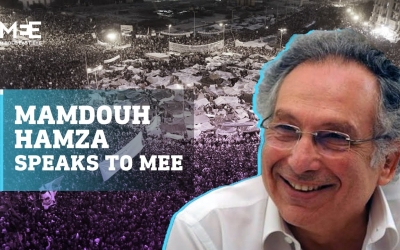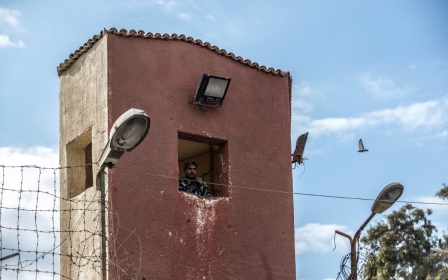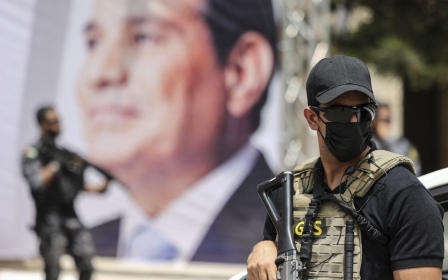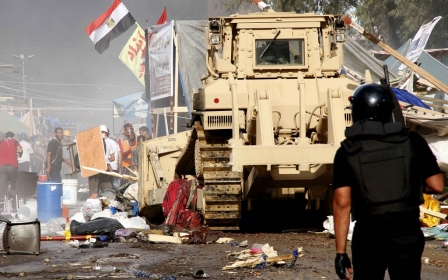Egypt detains former al-Ahram editor after he called on Sisi to step down
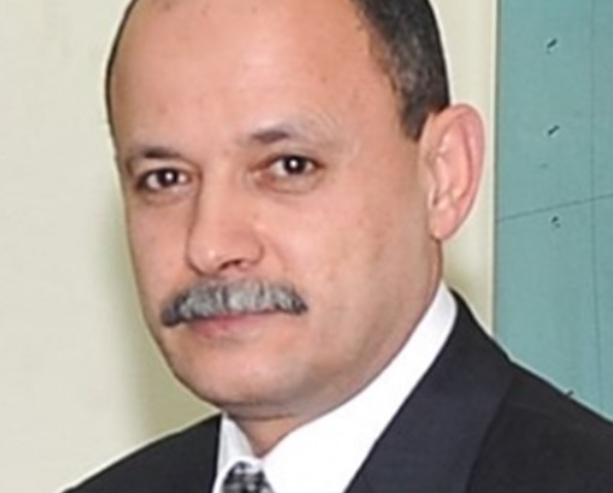
The former editor-in-chief of Egypt's leading state-owned newspaper al-Ahram was jailed on Sunday pending investigations over alleged charges of “financing terrorism”, local state media reported.
Egypt’s public prosecution decided to imprison Abdel Nasser Salama after the latter wrote a post on Facebook early last week calling on President Abdel Fattah el-Sisi to resign over his role in the “heavy defeat” related to Ethiopia’s Renaissance Dam.
In the Facebook post titled "Do it, President", Salama wrote: “Why does President Sisi not have the moral courage and declare his direct responsibility for the heavy defeat against Ethiopia, and the loss of Egypt’s historical right in the waters of the Nile?"
The Grand Ethiopian Renaissance Dam (GERD), set to be Africa's largest hydroelectric project when completed, has been the source of an almost decade-long diplomatic stand-off between Ethiopia and downstream nations Egypt and Sudan.
Addis Ababa has long argued that the project is essential to its development, but Cairo and Khartoum fear it could restrict their citizens' water access.
Earlier in July, Egypt raised objections after receiving official notice from Ethiopia that, for the second year in a row, it had begun filling the reservoir behind the dam on the Nile river.
Many Egyptian opposition figures have expressed their fears over the Sisi government's failure to prevent the second filling of the dam, which is considered an existential threat to the country that relies on the Nile for as much as 90 percent of its fresh water.
Salama was reportedly arrested in his home in the city of Alexandria on Sunday. In addition to “financing terrorism”, the journalist was also charged with spreading false news on social media and undermining state agencies and institutions.
In May, an ex-diplomat was also arrested over his online criticism of the government's "mismanagement" of the crisis.
Social media reactions
Prior to Salama's arrest, he had been subjected to an online campaign by pro-government media and journalists. One lawyer lodged a complaint against him with the public prosecutor, demanding his arrest for "intentionally spreading false news" about the dam issue. A social media hashtag was also launched accusing Salama of being "an agent" and "a traitor".
Many journalists and opposition activists have shown solidarity with the detained journalist, condemning the government's crackdown as an attack on free speech.
Translation: Why is it illegal for a citizen to demand the president of his country to step down from the position he says he attained by the will of his citizens? Why does the regime arrest the journalist Abdel Nasser Salama? Has the position of the president become a divine right after the president said that God speaks to him? Did not his Lord tell him that Hell is the abode of all those who are excessive or tyrannical?
In addition to his comments on the Nile dam, Salama also slammed Sisi for handing over two Red Sea islands to Saudi Arabia in 2017 amid protests, reaching a controversial gas deal with Israel, bringing the country into debt over large armament purchases and pushing a campaign of thousands of politically motivated arrests.
Salama was appointed as editor-in-chief of al-Ahram, Egypt’s most widely circulated newspaper, by Egypt’s Shura Council in 2012 in the wake of the election of Mohamed Morsi, Egypt’s first freely elected president since the ousting of Hosni Mubarak.
However, he was dismissed from the position in January 2014, six months after the coup against Morsi.
Since Sisi, then Egypt's army chief, took power following Morsi’s removal, rights groups have raised concerns over the government’s crackdown on political opponents. Egypt is estimated to hold some 60,000 political prisoners, many of whom are detained in cramped conditions and subjected to torture.
Middle East Eye delivers independent and unrivalled coverage and analysis of the Middle East, North Africa and beyond. To learn more about republishing this content and the associated fees, please fill out this form. More about MEE can be found here.


